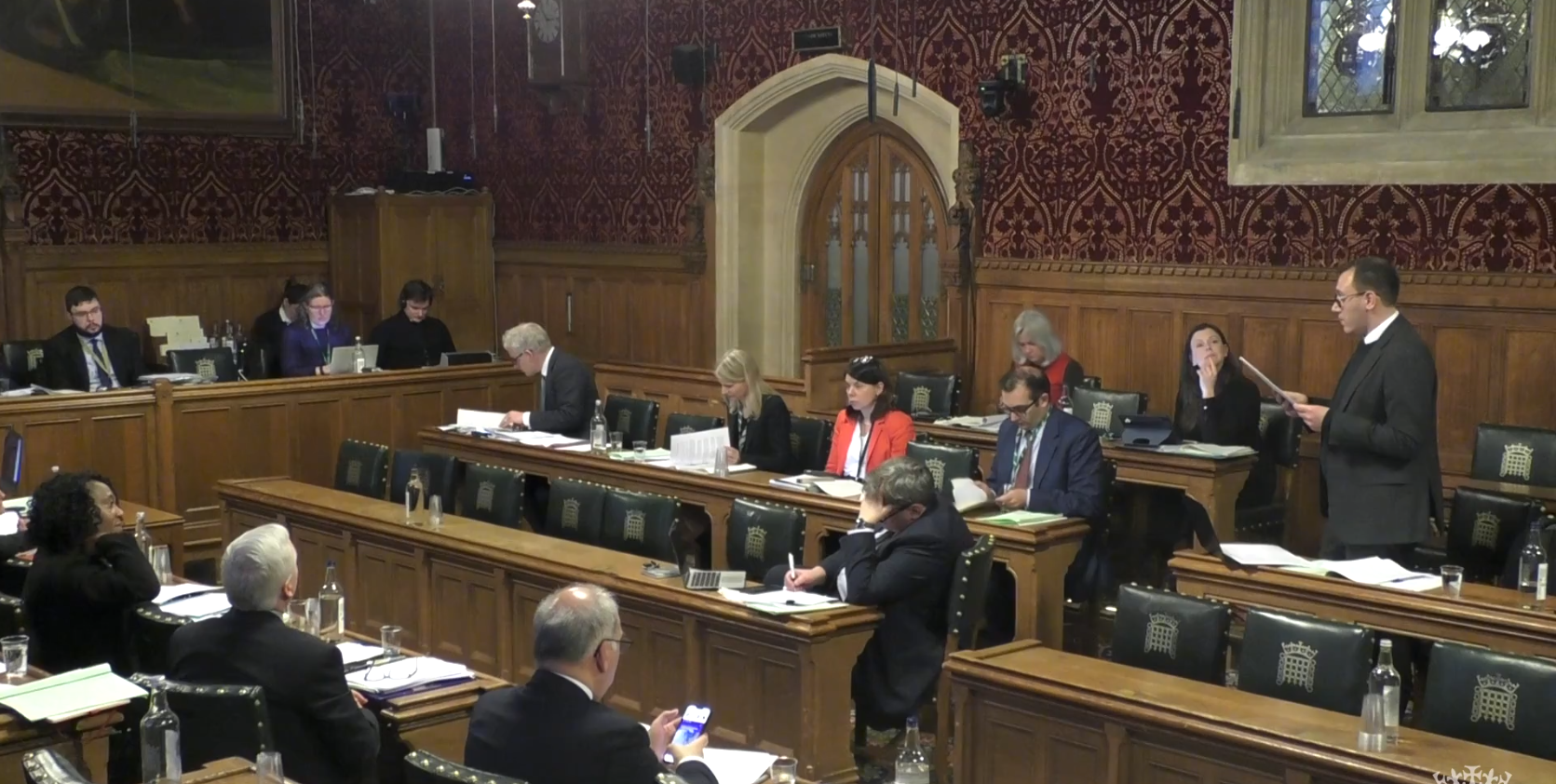 The Terminally Ill (Adults) Bill committee has spent two months debating over 500 amendments. Several changes have been made to the Bill, so here’s our guide to what has changed.
The Terminally Ill (Adults) Bill committee has spent two months debating over 500 amendments. Several changes have been made to the Bill, so here’s our guide to what has changed.
An expert panel with judicial oversight replaces the High Court judge approval
The original draft Bill required every single assisted death to be approved by a High Court judge. This received considerable criticism for being costly and time-consuming. Instead, it has been replaced with a Voluntary Assisted Dying Commission and expert panels.

The Royal Courts of Justice on the Strand in the City of Westminster
A High Court judge or senior former judge will lead the Voluntary Assisted Dying Commission. It will oversee all cases and report each year on the number of applications and how many were approved or rejected.
It will also appoint expert panels, with each applicant for assisted dying going to a panel for a decision after sign-off by two doctors. The panel will be chaired by a senior lawyer or retired judge and also include a psychiatrist and a social worker.
Spain is the only country in the world that requires a panel to assess every single assisted death. While none requires the High Court, most jurisdictions trust two independent doctors to assess the patient, with no third tier of oversight.
The implementation period has been extended from two to four years
Amendment 548, which passed with 23 votes in favour and only one vote against by Tom Gordon MP, changed the maximum time the government could take to implement assisted dying from two years to four years. Assisted dying could be implemented earlier, but this change sets the maximum amount of time before the Act comes into effect.
Assisted dying must be implemented as soon as safe and practicable.
Watch @tomgordonLD‘s speech on why assisted dying should not be delayed. pic.twitter.com/Ox2EUMZYdD
— MyDeath, MyDecision (@MDMDmydecision) March 25, 2025
We were furious at this change. The amendment was only published Friday morning before it was debated Tuesday evening. We were the only organisation to immediately speak out about it.
We are going to campaign against it at every possible stage, and we will hold the Government’s feet to the fire to ensure that assisted dying is implemented sooner.
Eligibility remains unchanged, despite efforts
MPs on the committee did debate an amendment that would have allowed those with neurodegenerative illnesses to access assisted dying when they have twelve months or fewer to live, rather than six. Following the debate, the amendment was withdrawn due to lack of support.
The amendment would have aligned England and Wales’s assisted dying law with that found in most of Australia and would be particularly important for people with Motor Neurone Disease (MND), Huntington’s, Multiple System Atrophy (MSA), Progressive Supranuclear Palsy (PSP), and Corticobasal Degeneration (CBD), as well as some people with Parkinson’s. Under the Bill, some people with these conditions who meet the eligibility criteria of terminal illness would be excluded as the six-month limit is frequently past the point at which they need an assisted death – and sometimes it is past the point they can even be granted one.
Changes to training
Amendments from people who voted against the Bill have been accepted too. This includes one from Jess Asato, who voted no at the second reading, which added an amendment requiring all the doctors as well as members of the panel to have domestic abuse training. This was accepted unanimously.

Dr Marie Tidball MP – Terminally Ill Adults Bill Committee Member
Independent advocates for people who need support
A new clause by Dr Marie Tidball MP now provides assistance to people with learning disabilities, mental disorders, autism, or anyone who has substantial difficulty understanding the process. They can have an independent advocate to speak up on their behalf and the Government can issue codes of practice specifically for these groups of people.
Harsher sentences
The draft Bill created a new offence for coercing someone towards an assisted death, with a sentence of up to 14 years. This was increased to potentially life in prison, equivalent to murder.
Wrecking amendments defeated
Many amendments would have made the process so difficult to navigate or elongated the process so much that it would have been impossible for many people to use it. This is a serious issue, as we’ve seen in other jurisdictions where a percentage of people who want an assisted death and start the process die before they can be approved. Defeated amendments include:
- Amendment 282 would have meant that only those with ‘reasonable certainty’ of dying within one month could apply for assisted dying. With the timelines already in the Bill this would have made the system entirely unworkable.
- Multiple amendments gagging doctors from talking about assisted dying unless the patient raises it first. This would have stifled open and honest conversations about end-of-life care.
- Amendment 108 would have required the doctor who has an initial discussion with a person about assisted dying to offer to refer them to a specialist in palliative, hospice or other care, even if that was against their wishes.
- Amendments 301 and 317 would have doubled the reflection periods – this would cause too many people to die while waiting for approval.
Keeping well-defined definitions
There were extensive debates on whether to change established legal definitions around ‘pressure’, ‘coercion’ and ‘capacity’. These definitions were intensively debated throughout the whole committee however Ministers, as well as expert evidence maintain that using standard, already understood and working definitions and acts would be the safest way forward, preventing legal issues and uncertainty for both patients and doctors.
Conclusion
The committee’s deliberations have been thorough, thoughtful and respectful. The vast majority of the changes are positive, but we worry deeply about the delay to implementation and will continue to campaign against that.
England and Wales are not assisted dying pioneers. We can and must ensure that evidence from countries like Australia, Spain and New Zealand, where assisted dying is working well, is front and centre.
Notes:
Members of the MDMD team, as well as individuals affected by the current law on assisted dying, are available for interview upon request
For further comment or information, media should contact Nathan Stilwell at nathan.stilwell@mydeath-mydecision.org.uk or phone 07456200033.
Media can use the following press images and videos, as long as they are attributed to “My Death, My Decision”.
My Death, My Decision is a grassroots campaign group that wants the law in England and Wales to allow mentally competent adults who are terminally ill or intolerably suffering from an incurable condition the option of a legal, safe, and compassionate assisted death. With the support of over 3,000 members and supporters, we advocate for an evidence-based law that would balance individual choice alongside robust safeguards and finally give the people of England and Wales choice at the end of their lives.

